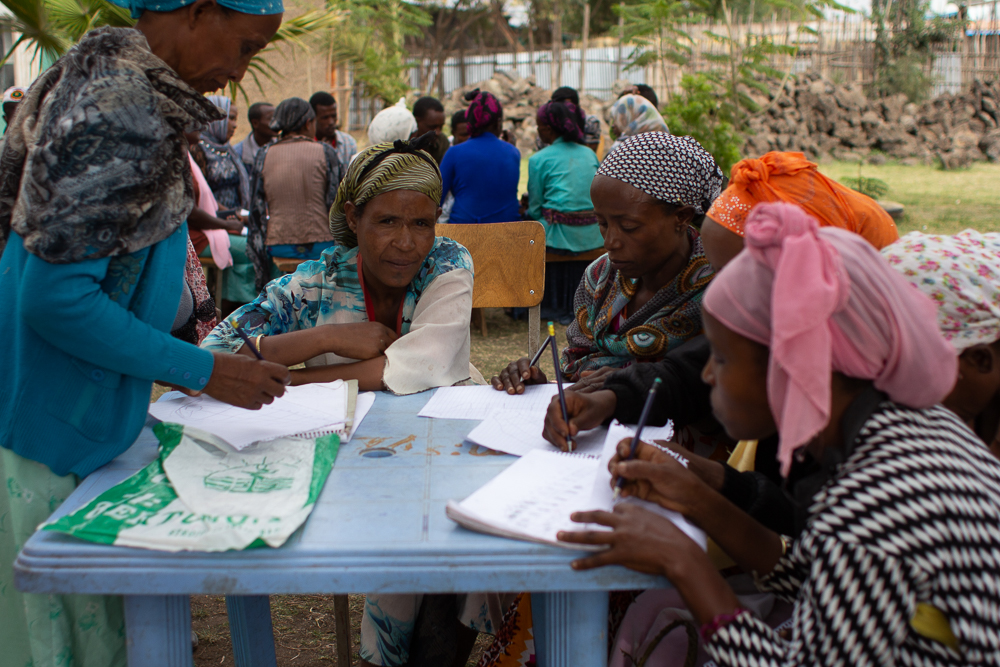What Is Financial Action Learning For Sustainability?
‘Financial Action Learning for Sustainability’ (FALS)
promotes:
an inclusive, empowering and financially sustainable partnership
between
- women and men from all backgrounds, including the ultra-poor and marginalised groups
- Financial Service Providers.
through integrating:
- client financial empowerment through sharing of pictorial financial planning and management methodology
- strengthening of community financial organisations and social networks
- FSP-level product market research and social performance management
FALS is based on work since 2001 with the micro-finance sector and financial service providers to promote financial inclusion and empowerment as a necessary and integral part of ‘Responsible Finance’ protocols.
FALS adapts simple proven pictorial diagram tools from the generic Participatory Action Learning System (PALS) empowerment methodology for:
- Client financial empowerment to enable women, youth and men from all social and economic backgrounds, including the poorest and those without formal education, to effectively identify and plan how they can best use and benefit from financial products.
- Building inclusive local financial networks: FALS Tools enable women and men to share and upscale good financial management and planning practices with other clients and potential clients, ultimately building a sustainable network of community financial advisers.
For Financial Service Providers – Community-based Financial Organisations (CBFOs), Micro-finance Institutions (MFIs) and formal sector service providers:
- Greater sustainability: funding member/client financial management skills and peer-sharing networks becomes an integral part of business expansion to bring in new reliable clients, reducing costs of following up bad debts and product marketing.
- Participatory product design and market research based on use of FALS planning and analysis tools with groups of members/clients from different backgrounds to discuss potential improvements to products that could increase their usefulness to clients and also be profitable for FSPs.
The basis for this inclusive, empowering and financially sustainable partnership is the development and implementation of:
- Responsible Finance Memorandum of Understanding (RFMOU) between clients and FSPs, developed by all members/clients and integrated into application processes for loans and other services. This is the core FALS tool in the form of a pictorial Financial Management Calendar based on mutually agreed Member/Client Protection Principles and the understanding that sustainable client empowerment also requires sustainability of the FSP (whether commercial or member-owned) to continue to develop and deliver quality products and services.
All these member/client-led inputs form the basis for a parallel process at all stages of:
- Organisational Visioning, Planning and Capacity Building using the same tools within organisations and integrated into staff training enable clearer organisational understanding of responsible finance strategies based on the realities of clients, including women and youth. This leads to better decision-making and communication at all levels.
FALS Evolution and Resources
FALS originated in use of PALS tools as part of participatory gender mainstreaming with MFIs in India (sponsored by ANANDI and CERMI), Bangladesh (CAFOD), Nepal (PACT) and Pakistan (Aga Khan Foundation) 2000-2006, followed by work with MFIs in the Latin America Micro-finance Networks in Central (Nicaragua, Guatemala, Honduras and Costa Rica) and South America (Peru, Ecuador, Colombia, Bolivia) for SNV, Hivos and Oxfam Novib and Sudan with LEAP-PASED. It also build on work in Uganda with the Microfinance Associations of Kabarole Research Centre, Trickle-Up US and savings and credit members of Bukonzo Joint Cooperative Union.
Under Oxfam Novib’s WEMAN programme in 2007 a preliminary draft concept note was developed for FALS as a Financial Action Learning System, and further developed for IFAD’s Rural Finance Programme (RUFIN) in Nigeria.
FALS was fully piloted for MFIs in Philippines with Oikocredit, NWTF and ASKI and funded by Church of Sweden. It started to be developed for use in VSLAs in Nigeria as a follow-on from GALS under the IFAD/Oxfam/Hivos Empower@Scale project in 2022. As of September 2022 FALS is currently being adapted and piloted by IFAD in Malawi as an entry-point empowerment methodology for members of CFOs and VSLAs in partnership with FARMSE and Opportunity Trust as part of thee UN Joint Programme for Gender Transformative Approaches (JP GTA), funded by the European Union.
IFAD Malawi Toolkit forthcoming December 2022
For discussions and materials on women’s empowerment and gender mainstreaming in microfinance see:
- Mayoux, L. C. and M. Hartl (2009). Gender and rural microfinance: Reaching and empowering women: Guide for Practitioners. Rome, IFAD.
- Mayoux, L C (2011) Women are Useful to Microfinance: How Can We Make Microfinance More Useful to Women? Presentation to Micro-Credit Summit Campaign Conference

















